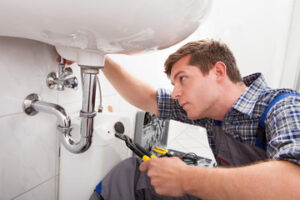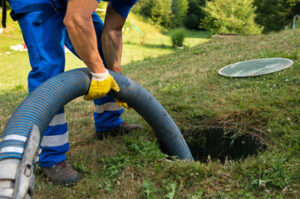Moving can be stressful, but a good mover will make it less so. Quality movers will take the time to safeguard both your furniture and your home. That includes using carpet protectors, padding and furniture blankets to prevent damage during transportation.

If you hire movers to pack your belongings, they will usually charge an hourly rate for this service. This is separate from the cost of moving itself, and may be higher on weekends. The amount of items being packed and whether stairs or elevators must be traversed will also affect this rate. Contact Movers Idaho Falls for professional help.
A professional moving company will usually have a team of well-trained, experienced packers. They will come with all the necessary packing supplies, including boxes of various sizes, bubble wrap, paper, foam sheets, and specialized bags for fragile items. They will begin by conducting a walk-through of your home to determine the scope of work and ask for any specific instructions. During this time, you should also make sure that you have a box set aside for essentials, such as passports, medications, and cleaning supplies.
The packers will proceed to your home in a systematic manner, starting with less-used rooms and ending with the kitchen. They will efficiently wrap and pack all items, ensuring that each box is properly labeled with its contents and destination room. They will also disassemble and reassemble large pieces of furniture as needed.
It is a good idea to clear out all areas of your home before the packers arrive. This will ensure that they have easy access to all items and that they can form an unobstructed pathway from each room to the moving truck. It is also a good idea to remove any loose wires or cords that could get in the way of the movers, and to clear away any items that will not be moving with you to your new home.
Once the movers have finished packing, they will complete an inventory of your belongings and provide you with a copy for your records. They will then load everything safely into their truck and transport it to your new home. Depending on the level of service you chose, they will also take care of disposing of any leftover packing materials.
To help your movers keep their energy levels up throughout the day, provide them with snacks and drinks. This will be especially important if they are packing fragile items or high-value belongings. Providing food and water will also prevent your movers from wasting time in the kitchen, which can slow down the overall packing process. If you are planning on serving a meal, consider making it vegetarian or vegan so that all of your movers can enjoy it. If you will be preparing a snack, make sure that it is easy to grab and eat. For example, a bowl of granola bars will be a welcome treat for your movers.
Loading
Loading movers are essential for the efficient and safe transport of your belongings. They ensure that your furniture and appliances are loaded into the truck properly and secured to prevent damage during the move. They also help you to load your items more quickly and efficiently, saving you time and money. During the loading process, it is important to make sure that your items are sorted by category and clearly labeled. This will help the movers to find your boxes easily and to ensure that all your belongings are accounted for at the destination. The movers will also use equipment such as dollies and ramps to safely transport large or heavy items.
A professional moving company will take care of all aspects of your move, including packing and loading. They will arrive on the scheduled day with all the necessary equipment and vehicles. They will also provide the appropriate protective materials for fragile or oversized items. You should prepare a list of inventory before the move, including the equipment you’ll need, the number of boxes, and the weight and size of your possessions. You should also decide on the route you’ll be taking and the type of carrier you’ll be using. This will help you to save time and money by minimizing the amount of packing required for your move.
When preparing to load your possessions, it is important to start with the largest and heaviest items. Place these items against the back wall of the truck to minimize their movement during transport. The movers will then load the medium-sized pieces such as nightstands, dressers, and cupboards. These will be placed on top of the heaviest items, such as sofas and beds. Loose and non-stackable items should be loaded last, such as treadmills, lawnmowers, and tools.
Moving large and bulky furniture through narrow hallways and tight corners can be challenging without the proper experience and equipment. Moreover, this task can be dangerous for untrained individuals, leading to property damage and personal injury. Professional movers have the skills and equipment to navigate your belongings through these challenging spaces. They can also assist with the assembly and disassembly of furniture and appliances. They will also help you select and purchase the right sized truck and equipment for your move, and ensure that all your belongings are securely loaded onto the vehicle. This will save you time and money, while ensuring the safety of your valuables.
Transportation
If you’re moving across the country or across the street, the transportation process will be a vital part of your move. The transport process can be complex, but a good mover will provide you with an accurate estimate and complete the job in a timely manner. You should also make sure your movers are licensed and insured.
Usually, moving companies will give you an estimated total cost of services based on the weight of your shipment. However, the company should only offer this estimate after a survey of your belongings. The survey should be conducted by a salesperson or a representative who can verify the items that you want to be moved. Besides offering an estimate, a professional mover must also give you the basic tariff fees that will apply to your relocation.
A full service move includes packing, loading, and unloading. During the packing process, your movers will carefully pack all of your belongings in boxes and wrap them with paper and bubble wrap to protect them. Then, they’ll label the boxes according to the rooms they’ll go to in your new home. They’ll also bring packing materials, including sturdy boxes in various sizes and specialized containers for fragile items.
Once your movers are done packing, they’ll load your belongings into their truck and transport them to your new home. Depending on the size of your home, this may take more than one day. After delivering your belongings, your movers will unload them and place them where they belong in your new house. This process usually takes an hour or two.
Before your move, you should schedule a date and time for the truck to arrive. The movers will call you to confirm the appointment, and they’ll also send you an email with instructions. You can also ask your movers to come at an earlier or later time if you’re not ready to be loaded yet.
When the movers arrive, they’ll do a walk-through of your home and discuss their scope of work. They’ll also bring all the packing materials they need, including cardboard boxes of different sizes and crates, tape, bubble wrap, and packing paper. Then, they’ll begin packing your things, starting with the less-used rooms and ending with the kitchen. Your movers will also mark and inventory your boxes, which is a legal requirement for interstate moves.
A PCS (personnel change of station) move is a major life event for many Soldiers and their families. It can be a stressful time, and it requires specific paperwork along with extra steps to receive a full reimbursement from the government. If you’re considering a PCS move, you should attend one of the many family readiness briefings that your local military support office offers. You can also find more information at the official DOD website.

